Activities
I-Café is a serie of seminars on welfare technology conducted by the center among researchers worldwide, all are welcome!
Conference information introduces relevant welfare technology conferences all over the world.
This year, the Finnish Society of Telemedicine and eHealth (FSTeH) celebrates its 30th anniversary. To mark the occasion, the Society hosted its flagship annual conference eHealth2025 under the theme “Strengthening Interoperability and Equality in Digital Health with Nordic Innovations.”
Organised in cooperation with Finland’s Ministry of Social Affairs and Health and supported by the Nordic Council of Ministers, the conference gathered leading healthcare professionals, policymakers, researchers, and technology experts to discuss international and Nordic trends in digital health. The programme featured keynote addresses, scientific presentations, and high-level policy dialogues.
The opening ceremony included a keynote speech by Clayton Hamilton, Regional Advisor at the WHO Regional Office for Europe, titled “Strengthening Digital Health: Solutions for Interoperability and Equality.” His remarks emphasised the importance of the European Health Data Space (EHDS) in advancing interoperability, cross-border collaboration, and fair access to digital services.
Xingyue Su, a doctoral researcher at the SRCWT, University of Eastern Finland, supervised by Prof. Honglin Chen and Prof. Pasi Karjalainen delivered the talk on “Digital Assistive Technology in the Care Scenario of Cognitive Impairment – Analysis Based on Technology Acceptance Model,” Su presented findings from qualitative interviews with caregivers in China. Her study highlighted both the promise of digital assistive technologies—such as GPS devices, social robots, and cognitive training apps—and the barriers to adoption, including cost, usability, and cultural concerns. She argued for a future care model based on human–technology collaboration, where innovative tools support but do not replace caregivers.
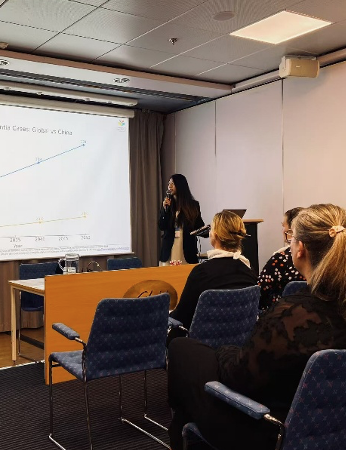
Sweden highlighted its Digital Public Services Accessibility Act and the 2025–2030 digitalisation strategy, while also acknowledging challenges such as the 5% of citizens who remain offline and nearly one million without electronic identification.
Denmark emphasised its six digital inclusion principles, stressing that solutions must be designed for all citizens, including vulnerable groups, and supported by political agreements and annual surveys on citizens’ digital challenges.
Finland presented the work of the Digital Population Centre and the newly established support centres in welfare counties, which aim to provide practical guidance to citizens at risk of digital exclusion.
Iceland reported that over 95% of households already have high-speed internet, and 85.5% of adults used the national patient portal last year, but stressed that digital literacy and data privacy remain significant concerns.
Norway shared its first-ever Digital Inclusion Index, noting strong performance in internet access and e-identification, but also weaknesses in universal design, with more than half of reviewed services failing to meet accessibility standards.
During the discussion, Prof. Honglin Chen raised a question on how digital inclusion could be structurally implemented at the system level—beyond high-level policy frameworks—to ensure that strategies are effectively translated into practice. The Nordic representatives responded by pointing to concrete mechanisms such as cross-sector cooperation platforms, digital agent modelsallowing trusted persons to act on behalf of patients, and hybrid service pathways that combine digital and analogue options to guarantee inclusivity.They also stressed that continuous evaluation, capacity-building for healthcare professionals, and community-level support structures are crucial to making digital inclusion sustainable in practice.
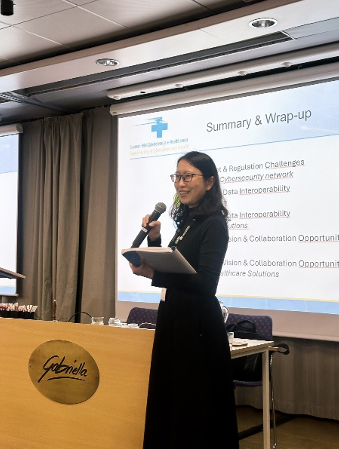
(Prof. Honglin Chen giving concluding remarks in the Nordic Vision and Collaboration opportunities discussion session.)
This exchange underscored not only the shared ambitions of the Nordic countries but also the practical complexities of embedding inclusion into everyday healthcare delivery. The dialogue provided valuable insights for international researchers and policymakers seeking to bridge the gap between policy design and on-the-ground implementation.
By bringing together international voices and Nordic innovations, eHealth2025 reaffirmed FSTeH’s central role in shaping the future of digital health. The conference underscored that interoperability, equality, and collaboration are essential drivers for the
Kuopio, Agust 18, 2025
During the recent academic exchange, SRCWT had the pleasure of hosting delegations from Hefei University of Technology and Metropolia University of Applied Sciences. The visit featured a series of insightful activities that fostered interdisciplinary dialogue and international collaboration.
Activity 1: Exploration of the HUMEA Laboratory at the University of Eastern Finland
The first stop was the HUMEA Laboratory (Human Measurement and Analysis), located at the University of Eastern Finland. Led by Professor Pasi Karjalainen, the lab tour showcased a comprehensive suite of advanced technologies designed for physiological and biomechanical research.
Key equipment demonstrated included:
-
- Wireless EMG systems: Delsys Trigno and Bittium Faros
-
- Full-body motion capture: Xsens Awinda with 18 IMUs
-
- Foot pressure analysis: Tekscan F-Scan
-
- Biological signal acquisition: Biopac systems for ECG, EEG, GSR, and skin temperature
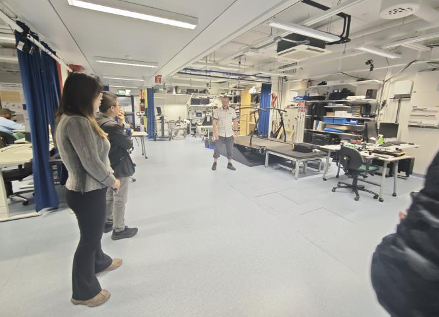
These tools, integrated with motion capture systems and force plates, enable a wide range of applications—from respiratory gas analysis during running, to postural balance testing under perturbation, musculoskeletal modeling, performance evaluation, and even ultrasound imaging of muscles and tendons.
The lab’s configuration allows seamless transitions between controlled experimental setups and real-world scenarios, supporting both precise kinematic studies and applied research in everyday contexts.
Activity 2: Doctoral Seminar and Research Exchange
A doctoral seminar was held to facilitate academic exchange among early-stage researchers. Presentations were delivered by:
-
- Zhang Yu and Liu Shuo from Hefei University of Technology
-
- Xiaoyue Hu, Xingyue Su, and Rong Xia from the University of Eastern Finland
Topics covered included:
-
- Evaluating ageism using large language models
-
- Effective care models for families of people with cognitive impairment
-
- The role of artificial intelligence in supporting professional caregiving
The seminar fostered vibrant discussions on the intersection of aging, technology, and social care, highlighting innovative methodologies and shared research interests.
Activity 3: Academic Sharing at Metropolia UAS
To conclude the visit, Professor Honglin Chen, head of the SRCWT team, delivered an academic presentation at Metropolia University of Applied Sciences. The session focused on Service-Learning Modules & Case Studies, emphasizing experiential learning and community engagement in social work education.
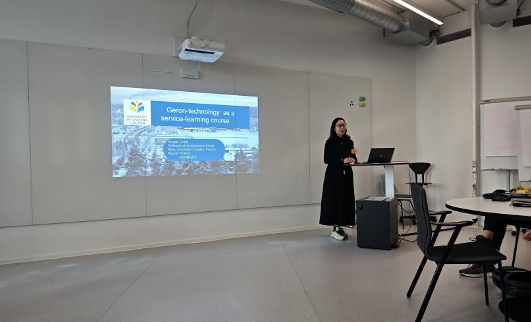
Through immersive lab experiences, interdisciplinary research dialogues, and cross-institutional sharing, the exchange fostered mutual understanding and opened new avenues for joint research and innovation. The integration of advanced human measurement technologies with socially impactful doctoral research exemplifies the potential of combining technical precision with human-centered inquiry. SRCWT looks forward to continuing this collaborative journey with Hefei University of Technology and Metropolia UAS, building a shared platform for knowledge exchange and societal advancement.
Note: Part of the Contents and Photos provided by Yu Zhang
Theme:Developing a Smart, Healthy Eldercare Course
Venue: Hefei University of Technology
Topic: What digital competency do social work students need in practice?
Moderator: Honglin Chen, Hui Yang
Panel participants: Gao Qinlin, Wang Jing, Mo Lin, Mi Li, Xiaohui Zhong
Aug 05-07, 2024
Joensuu & Kuopio, Finland
The International Conference on “Technological Evolution and the Ageing Era: Exploring Opportunities, Innovations, and Emerging Practices ” organized by the Department of Social Sciences, Social Research Center for Welfare Technology, University of Eastern Finland.
Conference Theme
The conference is dedicated to nurturing collaboration and innovation within the realm of welfare technology, with a keen emphasis on seizing opportunities, fostering innovative approaches, and instigating new practices. We extend our invitation to researchers, industry luminaries, non-profit organizations, doctoral candidates, and all relevant stakeholders, encouraging a collective exploration, discussion, and advancement of technological solutions aimed at augmenting the well-being of the elderly population.
We collected submissions of papers across a broad spectrum of topics, including but not limited to:
– Pioneering technologies tailored for old age care
– Digital innovations geared towards enhancing the quality of life in old age
– Assistive technologies designed to aid older adults with cognitive impairments
– Ethical considerations inherent in the development and deployment of welfare technology
– Examination of policy implications and regulatory frameworks within ageing societies
– Case studies and exemplars showcasing best practices in the domain of welfare technology
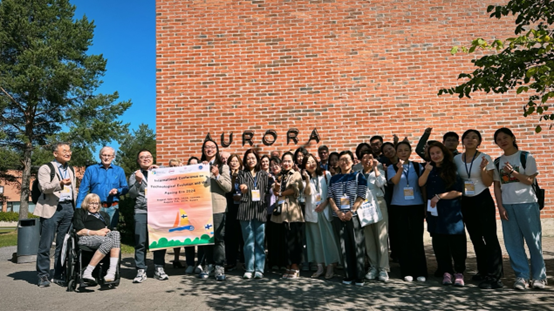
This conference, held at the Joensuu and Kuopio campuses of the University of Eastern Finland, attracted academic researchers, industry leaders, non-profit organization staff, and graduate students from Finland, China, the Czech Republic, and Korea. Participants explored and discussed technological solutions aimed at improving the welfare of the elderly. The conference covered multiple academic fields, with experts discussing topics from the perspectives of business management, data science, social sciences, ethics, and education. Key discussions included technology integration, assistive technology practices, technological innovations and interventions, social dynamics in elderly care, as well as empowerment and sustainable development.
Business management is crucial in providing elderly welfare services but faces numerous challenges and risks. The team from Kyungpook National University highlighted how technology startups can enhance their sustainability by strengthening their psychological capital and core competencies. They emphasized the importance of support from external networks and government funding. Meanwhile, the business department at the University of Eastern Finland explored the ethical issues associated with applying technological advances in care. They focused on how “trust” shapes effective cooperation between technology, people, and organizations.
The conference also spotlighted the application of technology in rehabilitation and health monitoring. Four scholars from Hefei University of Technology introduced their research on multimodal fusion methods for depression detection and the use of machine learning in gait prediction and rehabilitation equipment recommendation, showcasing the potential of technology to improve medical device design. Korean scholars demonstrated a new medical information system that assists in monitoring and preventing falls, pressure ulcers, and mental health issues in elderly patients.
The social sciences perspective is vital for understanding the social and cultural impacts of technology in elderly care. Researchers from the University of Ostrava in the Czech Republic presented how the PARO robot can reduce loneliness among the elderly in nursing homes, along with their upcoming experimental design. Additionally, a researcher from the University of Helsinki used data from the Survey of Health, Ageing, and Retirement in Europe (SHARE) to reveal the relationship between the use of assistive devices, their chosen types, and the decline in cognitive function among the elderly. A collaborative study between Fudan University and the University of Eastern Finland reviewed the application and effectiveness of assistive technologies in supporting elderly individuals with Alzheimer’s disease and their caregivers, highlighting the need for a comprehensive understanding of technology.
The practical application of technology in social and community settings was another key focus. A research team from Fudan University studied the decision-making processes in five communities in Shanghai using network analysis methods, discussing power structures at the community level and their impact on policy implementation. They also explored how elderly people in China form co-creation intentions in online communities using mixed research methods.
The use of technology necessitates talent empowerment and sustainable development considerations. The head of the Joensuu Housing Association in Finland introduced a project assessing technology in elderly service housing in Joensuu, demonstrating how the project evaluated the use of technology and enhanced living and care services for the elderly through technological advancements. Researchers from the University of Eastern Finland discussed the need to enhance digital competencies among gerontological social workers in China, emphasizing the essential skills and knowledge needed in education and practice.
These insightful presentations provided participants with a comprehensive understanding of how technology can improve the quality of life for the elderly from various perspectives. The conference also included site visits and interactive sessions, offering attendees firsthand experiences of the latest technological advancements. The successful hosting of this conference provided valuable academic and practical resources for addressing global aging issues, fostering international cooperation and knowledge exchange, and offering profound insights into future directions of research and practical applications in elderly welfare technology.
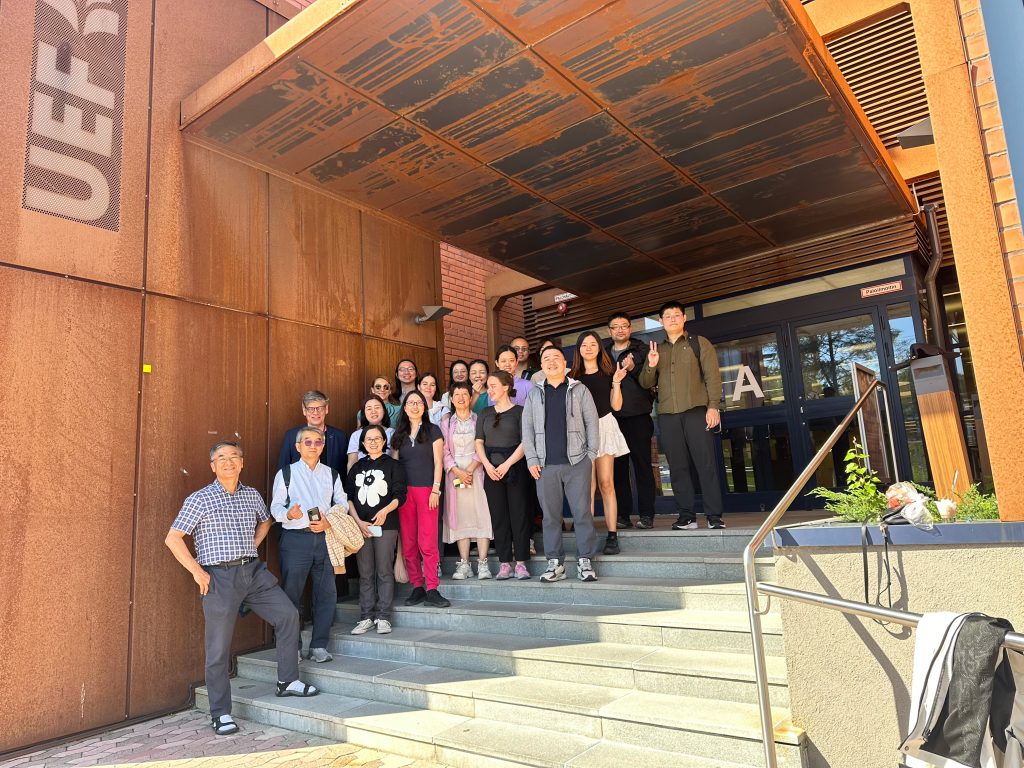

This conference, held at the Joensuu and Kuopio campuses of the University of Eastern Finland, attracted academic researchers, industry leaders, non-profit organization staff, and graduate students from Finland, China, the Czech Republic, and Korea. Participants explored and discussed technological solutions aimed at improving the welfare of the elderly. The conference covered multiple academic fields, with experts discussing topics from the perspectives of business management, data science, social sciences, ethics, and education. Key discussions included technology integration, assistive technology practices, technological innovations and interventions, social dynamics in elderly care, as well as empowerment and sustainable development.
Business management is crucial in providing elderly welfare services but faces numerous challenges and risks. The team from Kyungpook National University highlighted how technology startups can enhance their sustainability by strengthening their psychological capital and core competencies. They emphasized the importance of support from external networks and government funding. Meanwhile, the business department at the University of Eastern Finland explored the ethical issues associated with applying technological advances in care. They focused on how “trust” shapes effective cooperation between technology, people, and organizations.
The conference also spotlighted the application of technology in rehabilitation and health monitoring. Four scholars from Hefei University of Technology introduced their research on multimodal fusion methods for depression detection and the use of machine learning in gait prediction and rehabilitation equipment recommendation, showcasing the potential of technology to improve medical device design. Korean scholars demonstrated a new medical information system that assists in monitoring and preventing falls, pressure ulcers, and mental health issues in elderly patients.
The social sciences perspective is vital for understanding the social and cultural impacts of technology in elderly care. Researchers from the University of Ostrava in the Czech Republic presented how the PARO robot can reduce loneliness among the elderly in nursing homes, along with their upcoming experimental design. Additionally, a researcher from the University of Helsinki used data from the Survey of Health, Ageing, and Retirement in Europe (SHARE) to reveal the relationship between the use of assistive devices, their chosen types, and the decline in cognitive function among the elderly. A collaborative study between Fudan University and the University of Eastern Finland reviewed the application and effectiveness of assistive technologies in supporting elderly individuals with Alzheimer’s disease and their caregivers, highlighting the need for a comprehensive understanding of technology.
The practical application of technology in social and community settings was another key focus. A research team from Fudan University studied the decision-making processes in five communities in Shanghai using network analysis methods, discussing power structures at the community level and their impact on policy implementation. They also explored how elderly people in China form co-creation intentions in online communities using mixed research methods.
The use of technology necessitates talent empowerment and sustainable development considerations. The head of the Joensuu Housing Association in Finland introduced a project assessing technology in elderly service housing in Joensuu, demonstrating how the project evaluated the use of technology and enhanced living and care services for the elderly through technological advancements. Researchers from the University of Eastern Finland discussed the need to enhance digital competencies among gerontological social workers in China, emphasizing the essential skills and knowledge needed in education and practice.
These insightful presentations provided participants with a comprehensive understanding of how technology can improve the quality of life for the elderly from various perspectives. The conference also included site visits and interactive sessions, offering attendees firsthand experiences of the latest technological advancements. The successful hosting of this conference provided valuable academic and practical resources for addressing global aging issues, fostering international cooperation and knowledge exchange, and offering profound insights into future directions of research and practical applications in elderly welfare technology.

UEF Social Research Center for Welfare Technology and Young Universities for the Future Europe (YUFE) are offering an open source “Welfare Technology Innovation and Application in Digital Age” -course for doctoral students. The course’s aim is to help doctoral students:
-
- Understand today and future’s aging population and how technology can enhance health and independence
-
- Understand issues surrounding privacy and the ethical protection of the rights of older adults
-
- Understand the ways we are and can reinvent fitness, healthcare, ubiquitous and pervasive computing, and social networking, especially for older adults.
-
- Become familiar with research on various applications, examples, and considerations of gerotechnology, and its relationship with human being
-
- Be able to research and evaluate the potential of a specific gerontechnology application for an entrepreneurial business plan according to possible field study and scenario investigations
-
- Identify the steps, people, legislation and capital that will be needed to realize services and technologies to accommodate changing needs of older adults
-
- Identify how technology can assist care giver networks in maintaining independence in their homes
June 05-06,2025
Organizers:
School of Social and Public Administration, ECUST
Sanlian Institute of Health and Aging, ECUST
Co-organizers:
Shanghai Think Tank for Social Work and Social Policy
Shanghai Social Work Research Association
Welfare Technology and Society Research Center, University of Eastern Finland
The symposium, themed “Aging Welfare Technology: Digital Empowerment, Health Care, and Policy Practice,” aimed to integrate cutting-edge international expertise with local practical experience, transcend geographical boundaries, and build a diverse platform for exchange. It fostered in-depth dialogue and close collaboration among academia, industry, and policymakers. Scholars and experts from Europe, North America, the Asia-Pacific region, and domestic universities engaged in in-depth discussions on topics such as the application of technology and user experience in elderly care, health management and nursing service systems, and the intersection of social work and aging welfare technology. Through keynote speeches, thematic discussions, and various formats, participants shared the latest research findings and practical experiences, jointly exploring innovative pathways to enhance the quality of elderly care services through advanced technologies, thereby contributing wisdom and strength to addressing the global challenge of aging.
Open Ceremony
The opening ceremony of the symposium was chaired by Professor He Xuesong, Dean of the School of Social and Public Administration at East China University of Science and Technology (ECUST). The university was honored to have Vice President Yan Haifeng deliver the opening address. He extended a warm welcome and heartfelt thanks to all participating experts and scholars. In his speech, he emphasized that in response to the increasingly severe aging challenge in China, ECUST has strategically developed emerging disciplines such as health management, gerontechnology, and health-focused social work, building upon its existing academic strengths. He stressed the importance of cultivating high-level professionals locally while also strengthening international exchange and cooperation. By doing so, he noted, the university aims to explore solutions to global social issues and contribute wisdom and strength to the building of a shared future for humanity.
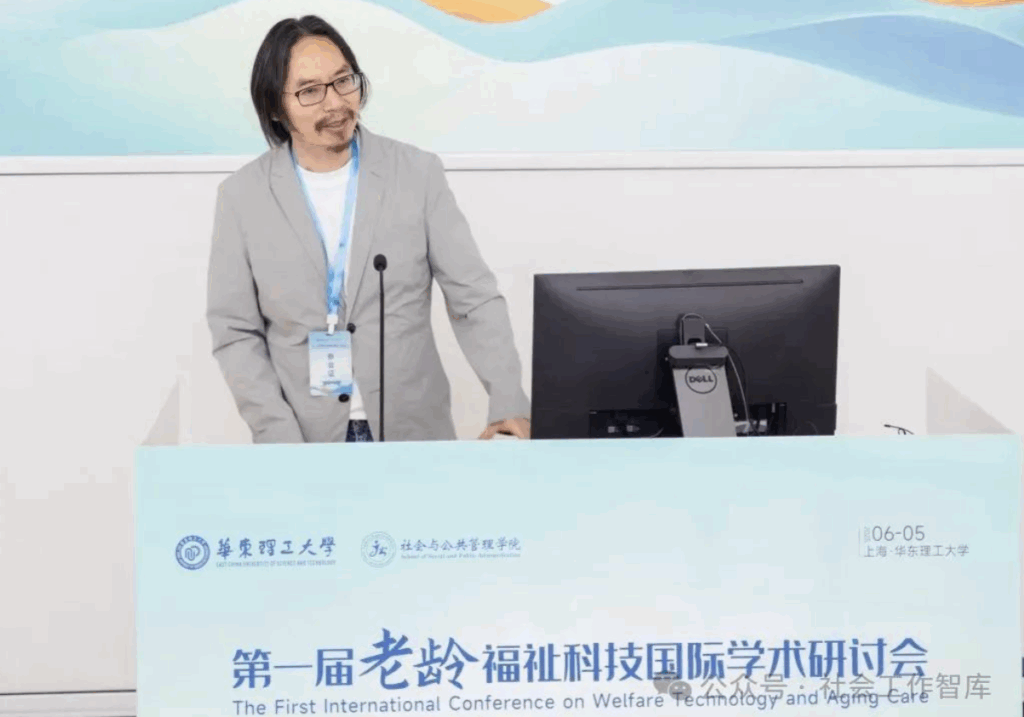
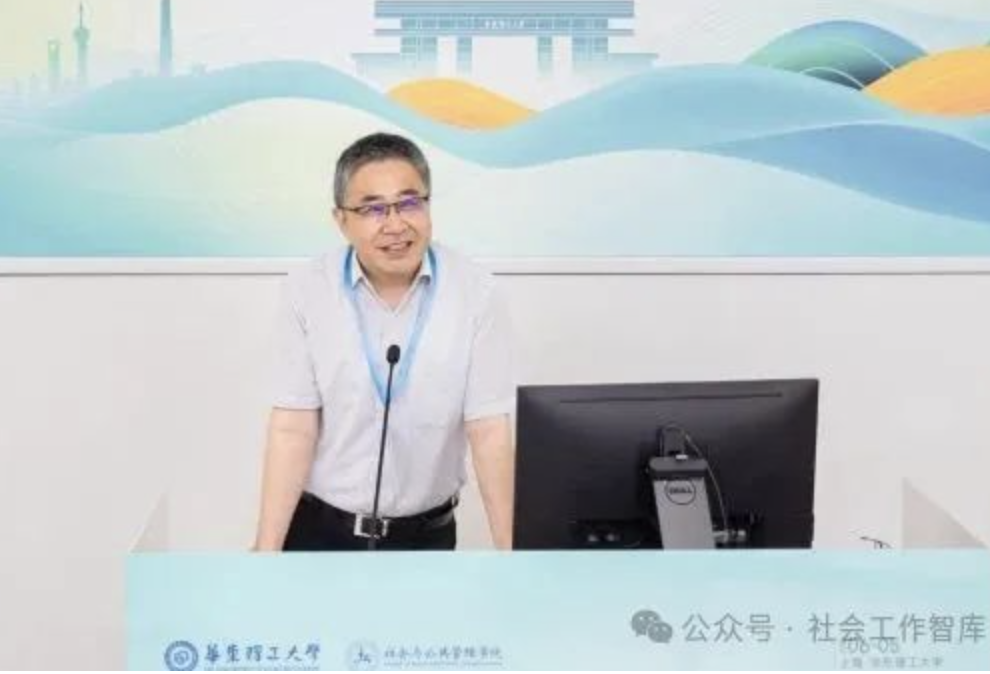
Keynote Presentations
-
- Section 1
The first session of keynote presentations was chaired by Professor Juha Hämäläinen, Honorary Professor at the University of Eastern Finland and the University of Ostrava. In this session, Professor Hongtu Chen from Harvard University, Professor Kathryn Almack from the University of Hertfordshire, and Professor Gyewan Moon from Kyungpook National University shared insights on topics such as social technology methodology, the impact of digital technology, and the willingness to adopt generative AI.
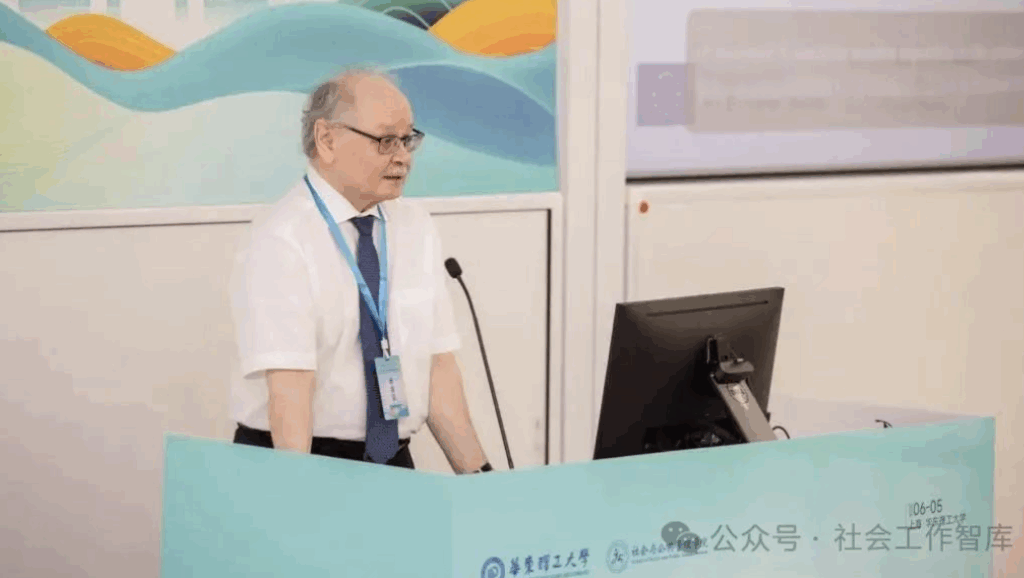
The first speaker, Professor Hongtu Chen from Harvard University, approached the current challenges in elderly care from the perspective of social technology. He addressed three key questions: “How do we understand the problem?”, “How do we find solutions?”, and “How do we apply, promote, and scale those solutions?” Based on practical applications, he proposed four core principles of social technology: interdisciplinary collaboration, in-depth research, co-design, and international cooperation.
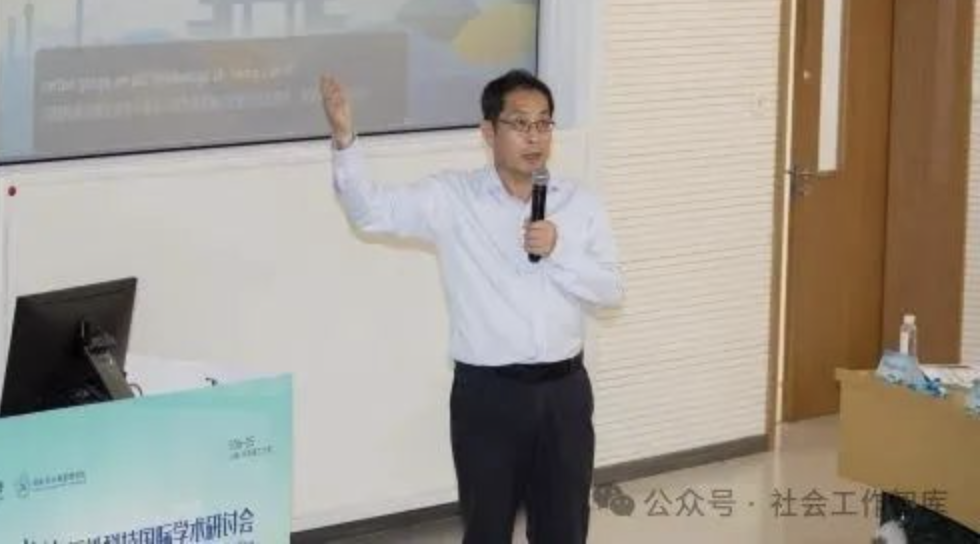
The second speaker, Professor Kathryn Almack from the University of Hertfordshire, explored the impact of digital technology on home-based elderly care. She pointed out that digital technology has a dual effect in this context: while it enhances the independence of older adults and promotes social participation, it can also be a source of stress and poses significant data security risks. She emphasized the importance of addressing data security issues and establishing robust protection mechanisms to balance the benefits of technology with its potential risks.
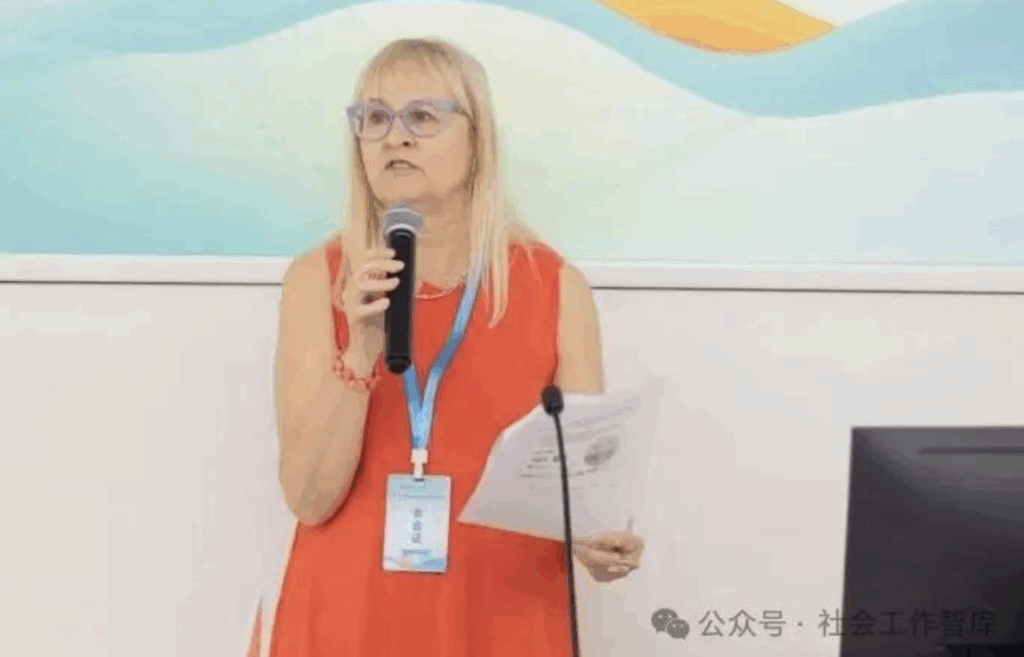
The third speaker, Professor Gyewan Moon from Kyungpook National University in South Korea, presented his research on the factors influencing startups’ willingness to adopt generative AI robots. Using the Value-based Adoption Model as a framework, he conducted structural equation modeling based on collected data. The findings revealed that the intention to use generative AI chatbots is primarily driven by perceived value. Perceived usefulness and enjoyment significantly enhance perceived value, while perceived cost has a negative impact. Interestingly, technical difficulty was not a significant factor, indicating that startups prioritize cost-effectiveness and practical functionality, and their strong adaptability to technology makes them more inclined to adopt high ROI AI tools.
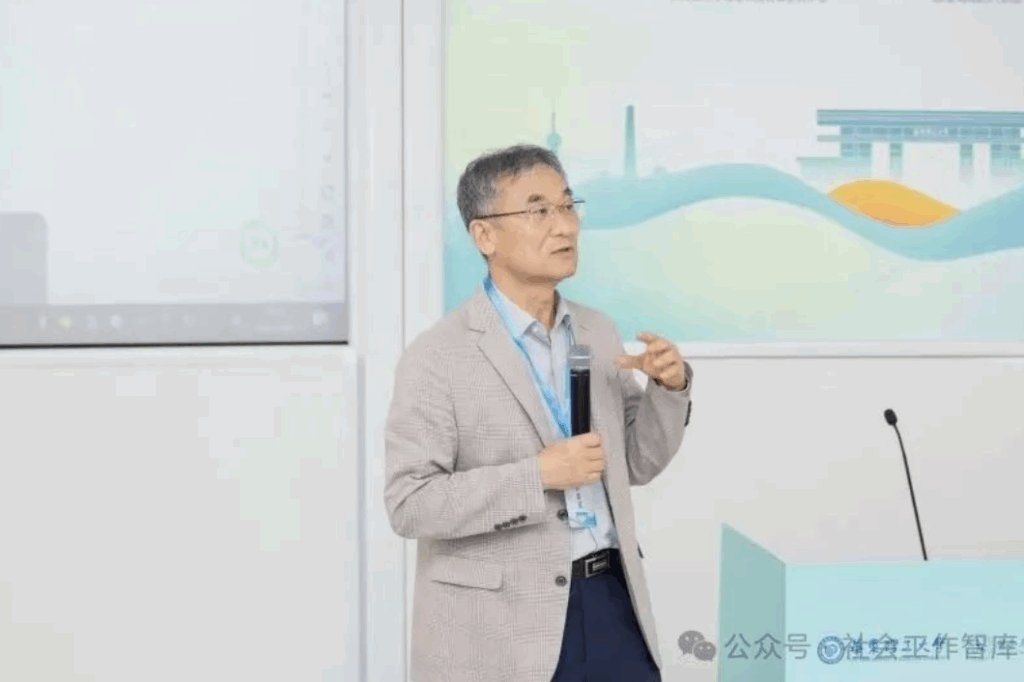
The fourth speaker, Professor Vivian Lou from the University of Hong Kong, identified four major barriers to technology adoption among older adults: stigma, technological complexity, resistance to change, and cost concerns. She advocated for a user-centered approach in applying technology to elderly care, emphasizing the need to create supportive environments and develop technologies that genuinely enhance well-being for older adults and their caregivers. She also highlighted the ethical concerns related to privacy breaches and algorithmic bias in technological applications
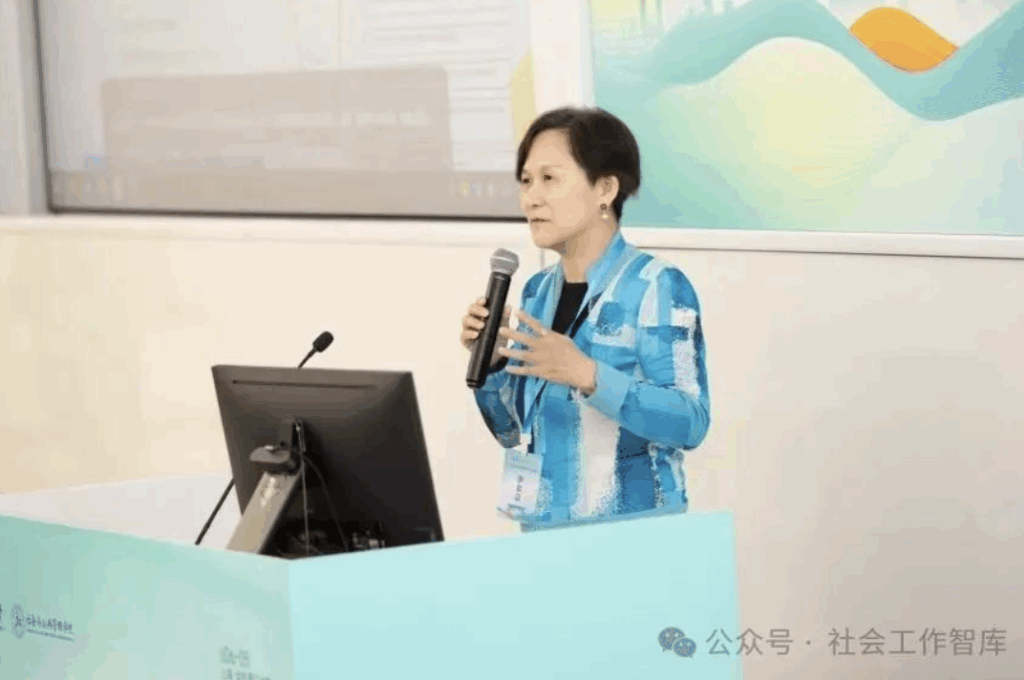
-
- Section 2
The second session of keynote presentations was chaired by Associate Professor Wang Ning from East China University of Science and Technology (ECUST). In this session, Professor Ruopeng An from New York University, Professor Jin Jing from ECUST, and Professor Ana Veloso from the University of Aveiro shared their insights on topics including applications of artificial intelligence, breakthroughs in brain-computer interfaces, and the role of game design in promoting technology acceptance
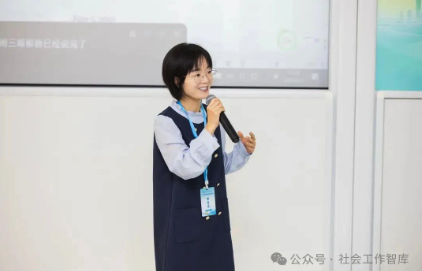
The first speaker, Professor Ruopeng An from New York University, provided a comprehensive overview of his team’s recent groundbreaking work in AI applications. In the scientific domain, they have utilized AI for high-precision detection of misinformation, policy sentiment analysis, disease surveillance and diagnosis, and the innovation of qualitative research tools. In the field of education, they have launched a series of certification courses in artificial intelligence and data science. In terms of social practice, they have organized multiple online and offline workshops, initiated community empowerment projects, and developed social media influence strategies.
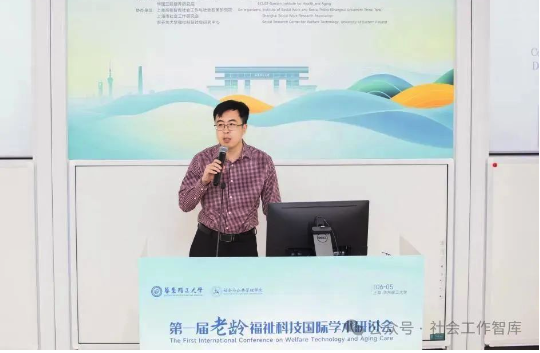
The second speaker, Professor Jin Jing from ECUST, introduced his team’s pioneering work in the field of brain-computer interfaces (BCI). Addressing challenges in traditional visual BCI systems such as signal overlap, peripheral interference, and limitations for special populations, the team proposed a novel encoding mechanism that significantly improves signal stability and recognition accuracy. To overcome issues like weak EEG signals, high noise levels, and individual variability, they integrated temporal, spatial, and frequency domain information to optimize feature extraction, greatly enhancing information transmission rates and advancing BCI technology from laboratory research to real-world applications.
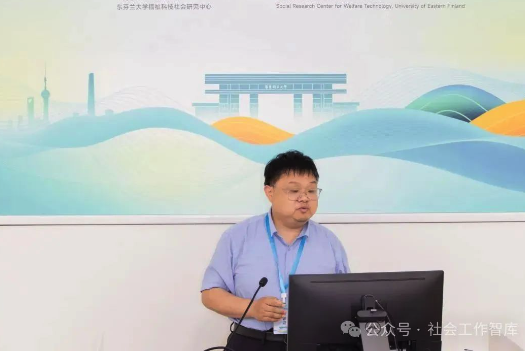
The third speaker, Professor Ana Veloso from the University of Aveiro in Portugal, proposed using digital game design as a strategy to address the challenges older adults face in adopting technology. Since 2019, her team has successfully designed and implemented a series of age-friendly digital game projects, such as the movie-based game miPlay and the memory game miOne Islands, aimed at improving digital literacy and social interaction among older adults in online communities.
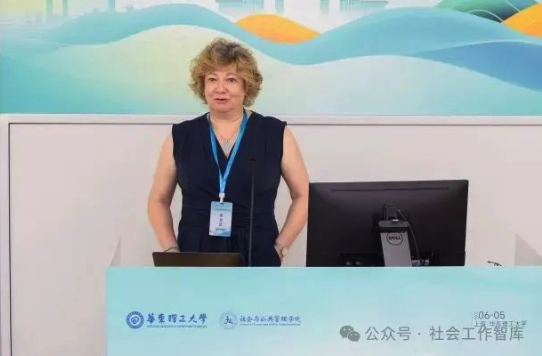
-
- Section 3
The third session of keynote presentations was chaired by Professor Yang Hui from the School of Sociology at Nankai University. In this session, Professor Juha Hämäläinen (Honorary Professor at the University of Eastern Finland and the University of Ostrava), Professor Sheng-feng Qin from Northumbria University, Professor Yucheung Wong from St. Francis University, and Senior Research Fellow Yuezhong Liu from Nanyang Technological University shared insights on topics such as AI applications in the welfare sector, smart flowerpot technology for elderly living alone, evaluation of smart elderly care technologies in Hong Kong, and practical applications of aging health technologies.
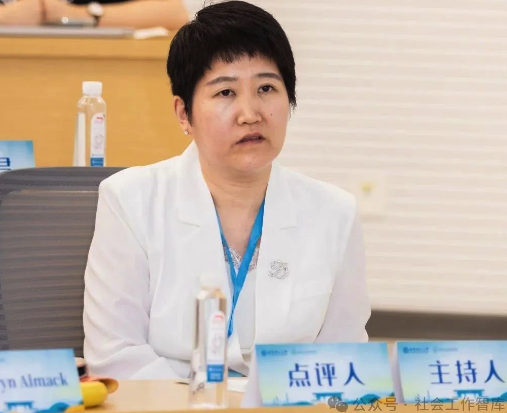
Professor Juha Hämäläinen emphasized that the digitalization of services and the professional application of AI are profoundly transforming work practices and professional standards in the social and healthcare sectors. However, he stressed that human judgment remains irreplaceable in professional decision-making in the welfare field, and professionals should not rely solely on machine-generated information.
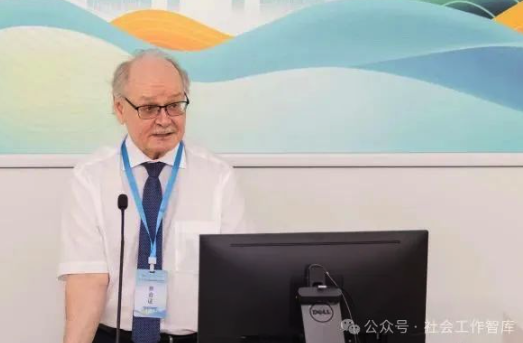
Professor Sheng-feng Qin shared his thoughts on integrating digital twin and generative AI technologies to address loneliness among elderly individuals living alone. He introduced a product concept called the “smart flowerpot design.”
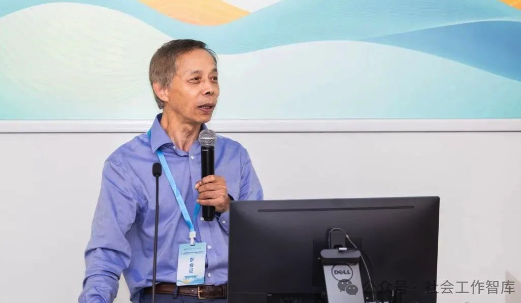
Professor Yucheung Wong presented the current aging situation in Hong Kong and the government’s investments in this area. He focused on 47 “Smart Elderly Care” projects recognized by the ICT Awards since 2006, including VR rehabilitation and health monitoring. He noted a shift from basic to personalized technology applications and predicted a significant increase in market demand as the baby boomer generation enters advanced age.
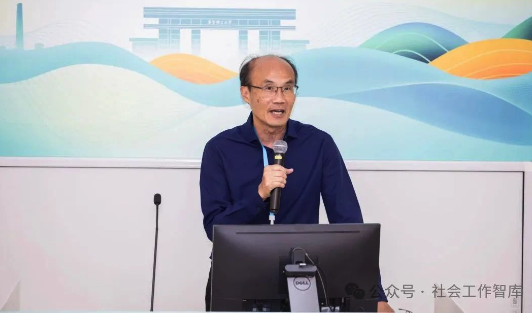
Senior Research Fellow Yuezhong Liu discussed the challenges Singapore faces regarding aging and introduced several ongoing projects in elderly care, health, and welfare. He emphasized the importance of clearly understanding the needs and expectations of elderly individuals and caregivers, and advocated for user-centered design in medical systems to enhance practical effectiveness.
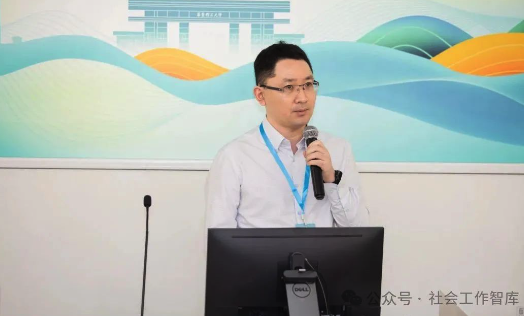
-
- Section 4
The fourth session was chaired by Professor Li Juan from Huashan Hospital, affiliated with Fudan University. In this session, Dr. Outi Ahonen from Laurea University of Applied Sciences, Professor Geok Ling Lee from the National University of Singapore, and Professor Honglin Chen from the University of Eastern Finland shared their work on digitalization in Finland, balancing digital and humanistic approaches, and digital interventions for cognitive impairment.
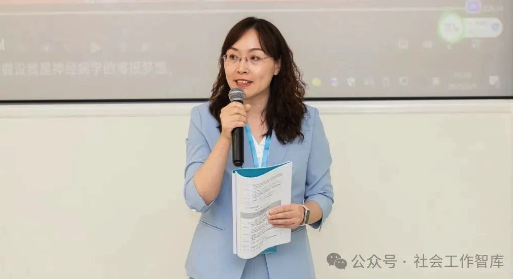
Dr. Outi Ahonen discussed Finland’s practices and experiences in promoting digitalization, particularly in the development of electronic and remote healthcare services. She analyzed the current state of digital skills and training needs, and proposed using AI and other new technologies to improve service efficiency and quality.
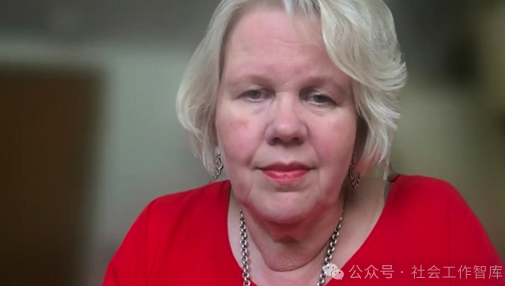
Professor Geok Ling Lee, Head of the Department of Social Work at the Faculty of Arts and Social Sciences, National University of Singapore, explored how to balance technology and human connection to alleviate loneliness and social isolation among older adults. She analyzed the effectiveness of technological interventions, human-machine collaborative design, community partnerships, and ethical considerations.
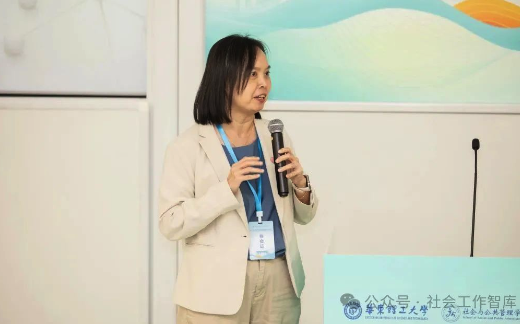
Professor Honglin Chen, Director of the Social Research Center for Welfare Technology at the University of Eastern Finland, focused on digital tools for non-pharmacological interventions in older adults with mild cognitive impairment. She introduced how these interventions can be integrated into care systems through caregiver collaboration and online models, enriching the pathways for implementation.
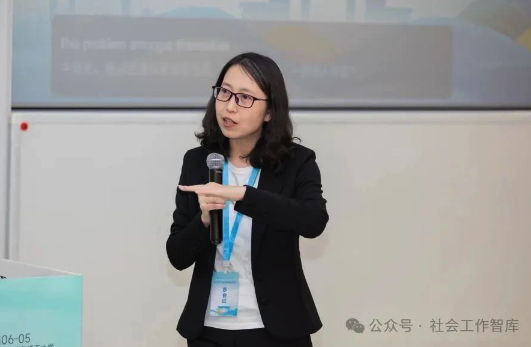
-
- Section 5
The fifth session was chaired by Associate Professor Song Yajun from East China University of Science and Technology. In this session, Professor Zhang Hongbo from ECUST, Assistant Professor Yifan Lou from Virginia Commonwealth University, Assistant Professor Fang Chao from the University of Liverpool, and Distinguished Associate Researcher Cheng Mengling from ECUST presented on wearable sensor rehabilitation, ICT inequality among vulnerable elderly populations, AI ethics in East Asia, and technology use among older adults in Shanghai.
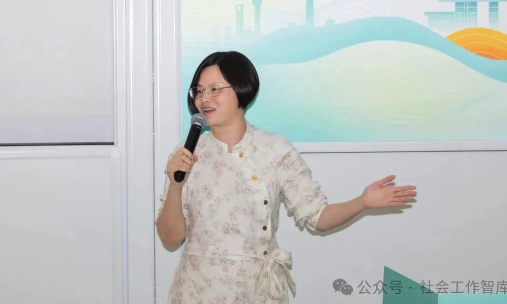
Professor Zhang Hongbo from the School of Mechanical and Power Engineering at ECUST shared her team’s achievements in wearable rehabilitation sensors. They developed a wireless human posture tracking system based on micro-inertial sensors and NRF24L01, using multi-inertial node fusion filtering algorithms and data synchronization methods to provide multidimensional data support for rehabilitation assessment.
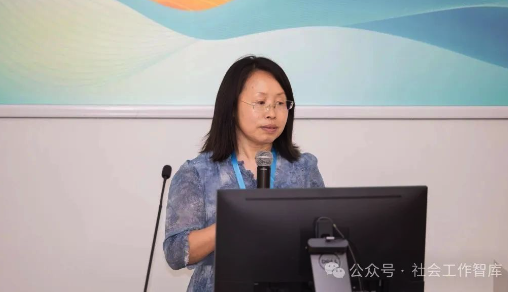
Assistant Professor Yifan Lou from the School of Social Work at Virginia Commonwealth University discussed the inequalities and barriers in ICT use among vulnerable elderly populations. She emphasized the need for more educational interventions to support their learning needs.
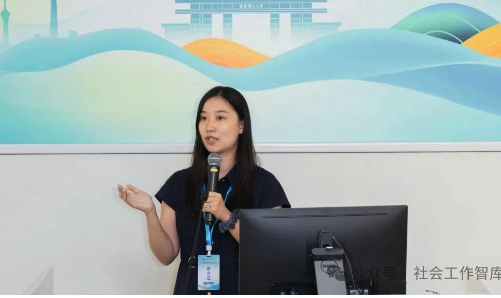
Assistant Professor Fang Chao from the University of Liverpool, also Deputy Director of the Centre for Research on Ageing and the Life Course, shared ethical considerations in applying AI as an intervention tool in qualitative aging research within East Asian contexts. He proposed a comprehensive and culturally sensitive ethical framework.
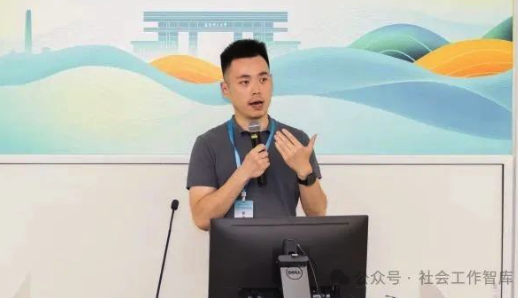
Distinguished Associate Researcher Cheng Mengling from the School of Social and Public Administration at ECUST introduced the Shanghai Family Cohort Study and preliminary findings on technology and digital tool usage among older adults in Shanghai. She outlined future plans to explore determinants of technology use and develop social service programs to support older adults in adopting new technologies.
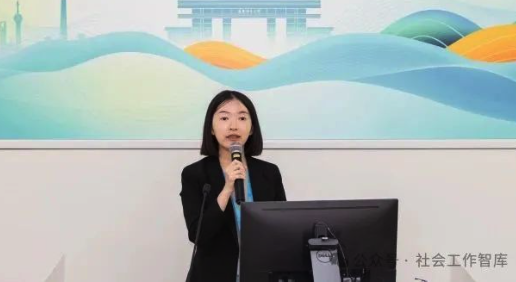
Parallel Forums
-
- Forum 1: Digital Technology and Elder Empowerment
The first sub-forum, themed “Digital Technology and Elder Empowerment,” was moderated and reviewed in the morning session by Mr. Mao Xupeng from East China University of Science and Technology (ECUST) and Ms. Xin Yongrong from Jiangsu Open University. In the afternoon session, Ms. Cheng Mengling and Mr. Zhou Deyu from ECUST served as moderators and reviewers. Seven scholars—Xin Yongrong, Mao Xupeng, Zhu Jingya, Yu Zhan, Liu Wei, Zhou Deyu, and Lu Jiaku—participated in the presentations and discussions.
Drawing on literature reviews and field research, and employing both quantitative and qualitative methods, the scholars conducted in-depth analyses of the challenges faced by older adults in the digital age. They explored multiple dimensions including digital inclusion, mobile payment adoption, digital self-efficacy, and age-friendly digital design. Based on these findings, they proposed actionable optimization strategies. These contributions provide both theoretical support and practical guidance for advancing digital education for the elderly, accelerating age-friendly digital transformation, and safeguarding digital rights for older populations—laying a solid academic foundation for building an inclusive and elder-friendly digital society.
-
- Forum 2: Elderly Health Management and Care Needs
The second sub-forum, themed “Elderly Health Management and Care Needs,” was moderated and reviewed in the morning by Ms. Jiao Keyuan from ECUST and Associate Professor Yang Fan from Shanghai Jiao Tong University. In the afternoon, the session was led by Associate Professor Liang Kun, Deputy Director of the MSW Education Center at ECUST and Vice President of the Shenzhen Social Workers Association, along with Ms. Ge Ling from Beijing University of Technology.
In the morning session, Associate Professor Yang Fan applied the Health Belief Model (HBM) and Social Ecological Model (SEM) in a quasi-experimental study on cognitive impairment risk communication among seniors over 65 in Shanghai communities. The results showed that structured communication was significantly more effective than unstructured methods, and SEM-based strategies were particularly effective for Chinese elderly populations.
Zhang Qiuxia, founder of the Xingfu Haima Elderly Service Center in Putuo District, Shanghai, analyzed institutional practices through a life-course perspective, examining the “technology–life course coupling.” Mr. Su Zexi used latent profile analysis to identify three digital literacy profiles among Chinese seniors and found significant differences in physical and mental health across these groups, emphasizing the importance of digital literacy in promoting healthy aging.
Researcher Elifira Akpar explored the relationship between digital technology use, health literacy, and mental health among older adults. Scholar Zhang Rui reviewed policy trends and current applications of elderly care technologies in Japan, analyzing their ethical implications and risks from a caregiving perspective.
In the afternoon session, Ms. Ge Ling used Beijing’s “One-Click Call” elderly care system as a case study to explore the dual path of technological innovation and social adaptation. Ms. Wang Juanjuan applied a cross-lagged model to examine the bidirectional relationship between social participation and cognitive function in older adults. Scholar Wang Linlan discussed responsibility-sharing in smart emergency response systems for home-based seniors. Student Liu Qian explored the relationship between informal caregiving and blood pressure, finding that informal care may have protective effects on cardiovascular health. Student Cai Yunjia studied the impact of access to adequate healthcare services on frailty risk and outcomes among Chinese seniors. Scholar Chen Qingru focused on the lived experiences and causes of social isolation among hemodialysis patients.
-
- Forum 3: Aging Policy and Social Work Practice
The third sub-forum was moderated and reviewed in the morning by Ms. Li Xiao from ECUST and Ms. Tao Yu from Northeast Normal University. In the afternoon, Mr. Wang Ning from ECUST and Mr. Feng Zhixin from Sun Yat-sen University served as moderators and reviewers. Ten scholars presented on cutting-edge topics such as smart elderly care, age-friendly policies, and guardianship mechanisms, offering interdisciplinary solutions to aging challenges.
The morning session focused on the challenges of integrating technology with social work. Ms. Tao Yu used a case study of a smart elderly care facility in City C to highlight the risk of professional boundaries being eroded under intelligent systems, and proposed institutionally feasible paths for collaboration. Mr. Shao Linzhuo conducted policy text mining to construct a “Industry–Service–Society” three-dimensional framework to support the implementation of smart elderly care policies. Ms. Yu Yi critically analyzed power dynamics among multiple stakeholders in smart elderly care. Students Yang Xueru and Yang Liping, from the perspective of frontline social workers, identified operational, technical, and value-level challenges in smart elderly care platforms. Student Chen Jianying explored spatial coordination and resource-sharing mechanisms for elderly care between urban and suburban areas in megacities.
The afternoon session deepened discussions on risk governance and institutional innovation. Student Ouyang Caihong systematically reviewed the evolution of digital age-friendly policies and proposed a three-dimensional analytical framework of “governance tools–levels of action–target domains.” Student Chen Pengyu, from a notarial perspective, proposed improving the supervisory mechanism for advance directives in elderly guardianship, using legal and technological means to protect the rights of the ward. Student Wang Yanfang analyzed the power and rights dilemmas in smart aging societies from a risk governance perspective and proposed a “five-in-one” collaborative governance model. Scholar Dong Rui, using CLASS 2020 data, revealed unmet community elderly service needs and their influencing factors, finding a non-positive correlation between GDP and service satisfaction. Scholar Sun Dihua, from a sociotechnical perspective, constructed a “technology–institutio